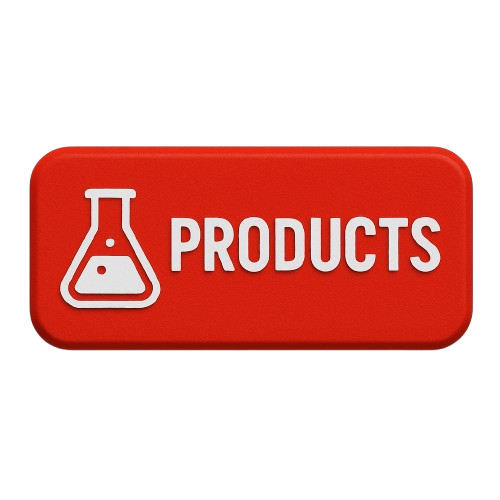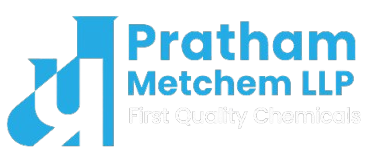FAQ's
Calcium-Zinc Heat Stabilizer
A Calcium Zinc (Ca-Zn) PVC Heat Stabilizer is an additive used in PVC manufacturing to protect the polymer from thermal degradation during processing and improve its long-term heat stability.
It works by replacing toxic lead-based stabilizers and providing heat resistance through a combination of calcium and zinc compounds, which neutralize hydrochloric acid released during PVC processing.
Non-toxic and environmentally friendly
Complies with RoHS and REACH regulations
Good long-term thermal stability
Suitable for applications requiring high safety standards, such as pipes and medical products
PVC pipes and fittings
Cable insulation and sheathing
PVC profiles and windows
Toys and medical-grade PVC products
Packaging films
Zinc Stearate
Zinc stearate is a white, powdery substance and it is commonly used as a lubricant, release agent, and stabilizer in a variety of industrial and cosmetic applications.
Zinc stearate is used in plastic and rubber manufacturing, cosmetics (like powders and creams), pharmaceuticals (as a tablet lubricant), paints and coatings (as a dispersing agent), and in paper and textile processing.
Yes, zinc stearate is generally considered safe for use in industrial and cosmetic applications. However, inhaling fine particles over a long period may cause respiratory irritation, so protective equipment is recommended when handling it in powder form.
No, zinc stearate is insoluble in water. However, it is soluble in certain organic solvents like aromatic and chlorinated hydrocarbons.
Zinc stearate is not typically used directly in food products. However, it may be used in indirect food contact applications like packaging or equipment. Only food-grade versions, when approved by regulatory bodies, should be used in such cases.
Calcium Stearate
Calcium Stearate usually supplied as a fine white powder and it is widely used as a lubricant, stabilizer, and release agent in various industries such as plastics, rubber, pharmaceuticals, and cosmetics.
- PVC and plastic processing as a heat stabilizer and lubricant
- Rubber industry as a release agent and anti-caking agent
- Pharmaceutical tablets as a flow aid
- Cosmetics and personal care products as a thickener and stabilizer
- Powder coatings and paints for water repellency
- Yes. Food and pharmaceutical-grade Calcium Stearate is considered safe and is approved for use as an excipient in medicines and as an additive in cosmetics.
No, Calcium Stearate is insoluble in water but slightly soluble in hot oils and certain organic solvents.
It is usually supplied as a fine white powder, available in different grades: industrial, food, and pharmaceutical.
- Acts as an effective lubricant and release agent
- Provides water repellency and anti-caking properties
- Enhances thermal stability in plastics
- Cost-effective compared to other metallic stearates
Sodium Stearate
Sodium Stearate is commonly used in the manufacture of soaps, cosmetics, deodorants, and pharmaceuticals. It functions as a surfactant, emulsifier, and thickening agent.
Yes, Sodium Stearate is generally recognized as safe for use in personal care products. It is widely used in formulations for soaps, creams, and lotions.
No, Sodium Stearate is not typically approved for direct food applications. It is intended for use in cosmetic, pharmaceutical, and industrial products.
When stored in a cool, dry place away from moisture and sunlight, Sodium Stearate typically has a shelf life of 2 to 3 years.
Yes, Sodium Stearate is water-soluble and forms a gel-like consistency in solution, which is useful in soap and gel manufacturing.
Aluminium Stearate
Aluminium Stearate is a white, fine powder and it is commonly used as a thickening, gelling, and water-repelling agent in various industries.
It is widely used in:
Paints and coatings (as a thickener and stabilizer)
Plastics and rubber (as a lubricant and release agent)
Cosmetics (as an emulsifier and opacifying agent)
Greases (as a thickening agent)
Construction materials (as a waterproofing additive)
Yes, when handled according to safety guidelines. However, avoid inhalation of dust and direct skin contact. Always use appropriate protective gear.
Appearance: White powder
Odor: Slight fatty odor
Solubility: Insoluble in water, soluble in hot oils
Melting Point: Around 115–155°C
Magnesium Stearate
Magnesium Stearate is commonly used as a lubricant, anti-caking agent, and release agent in the pharmaceutical, cosmetic, food, and plastic industries. It helps prevent ingredients from sticking to manufacturing equipment and improves product consistency.
Yes, when used within regulated limits, food-grade and pharmaceutical-grade Magnesium Stearate is considered safe by global health authorities including the FDA and EFSA.
It is a compound made from magnesium and stearic acid, which can be derived from both plant and animal fats. However, we ensure sourcing from high-purity, certified suppliers to meet industry-specific standards.
It is widely used in:
Pharmaceuticals (tablet and capsule manufacturing)
Nutraceuticals and supplements
Cosmetics and personal care (creams, powders)
Food processing
Plastics and polymers
No, when used in recommended quantities, it does not interfere with the absorption or effectiveness of active pharmaceutical ingredients.
XLPE Tape
XLPE tape is made from cross-linked polyethylene. It is used for insulation and shielding in high-voltage power cables due to its excellent thermal, electrical, and mechanical properties.
Electrical cable insulation
High-voltage and medium-voltage cables
Wrapping conductors
Jointing and splicing
Insulation enhancement
Because of its:
High thermal resistance
Excellent electrical insulation properties
Resistance to chemicals and moisture
Mechanical strength and durability
Typically:
Continuous operating temp: up to 90°C
Short-circuit temp: up to 250°C








